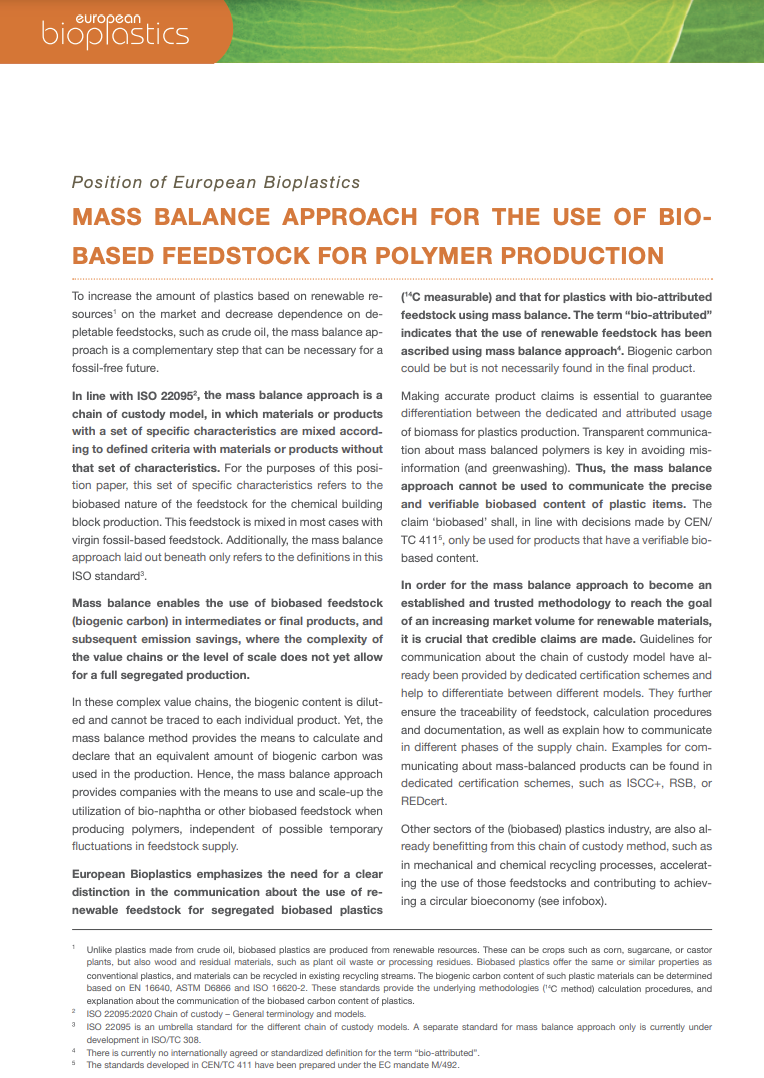 Traditional polymer manufacturing processes heavily rely on fossil fuels as feedstock, contributing to greenhouse gas emissions and the depletion of finite resources.
Traditional polymer manufacturing processes heavily rely on fossil fuels as feedstock, contributing to greenhouse gas emissions and the depletion of finite resources.
The utilisation of biomass in the plastics sector has evolved to offer sustainable alternatives to conventional fossil-based materials. By leveraging biogenic feedstock, the industry can reduce its environmental impact and promote circularity.
However, the complexity of value chains or the level of scale currently often doesn’t allow for a fully segregated production using biogenic feedstock. In these cases, the mass balance approach can help to increase the amount of biobased carbon in the loop and accelerate the transition to a more sustainable and carbon neutral production.
In line with ISO 22095, the mass balance approach is a chain of custody model in which materials or products with a set of specific characteristics are mixed according to defined criteria with materials or products without that set of specific characteristics. In the case of the biomass mass balance methodology, these characteristics refer to the biobased nature of the feedstock used for the chemical building block production.
It is essential to make accurate product claims about biobased content to avoid misinformation and greenwashing.
Recognizing the importance of biobased products, the European Commission initiated the development of standards for biobased products under the mandate M/492 in 2011. In response to this mandate, the responsible standardization committee CEN/TC 411 has published multiple standards specifically addressing biobased products. These standards offer clear guidance on how to determine and effectively communicate the biobased content of materials, including plastics.
The mass balance approach, on the other hand, cannot be used to communicate the precise biogenic (carbon) content of plastic items, so the usage of the term “biobased” is not appropriate. Certification schemes are already in place, including guidelines on proper communication. For example, the term “bio-attributed” indicates that the use of biobased feedstock has been ascribed using mass balance methodology and is a clear distinction to materials in which the biobased content can be verified using the radiocarbon method.
Achieving a true circular economy by 2050 requires carbon systems to become biobased and renewable. The mass balance approach can help to increase biobased carbon in the loop and accelerate the transition to a more sustainable and carbon neutral future, but products that are brought to the market based on this methodology need suitable and transparent communication guidelines. You can read EUBPs full position on mass balance approach for the use of biobased feedstock for polymer production here.